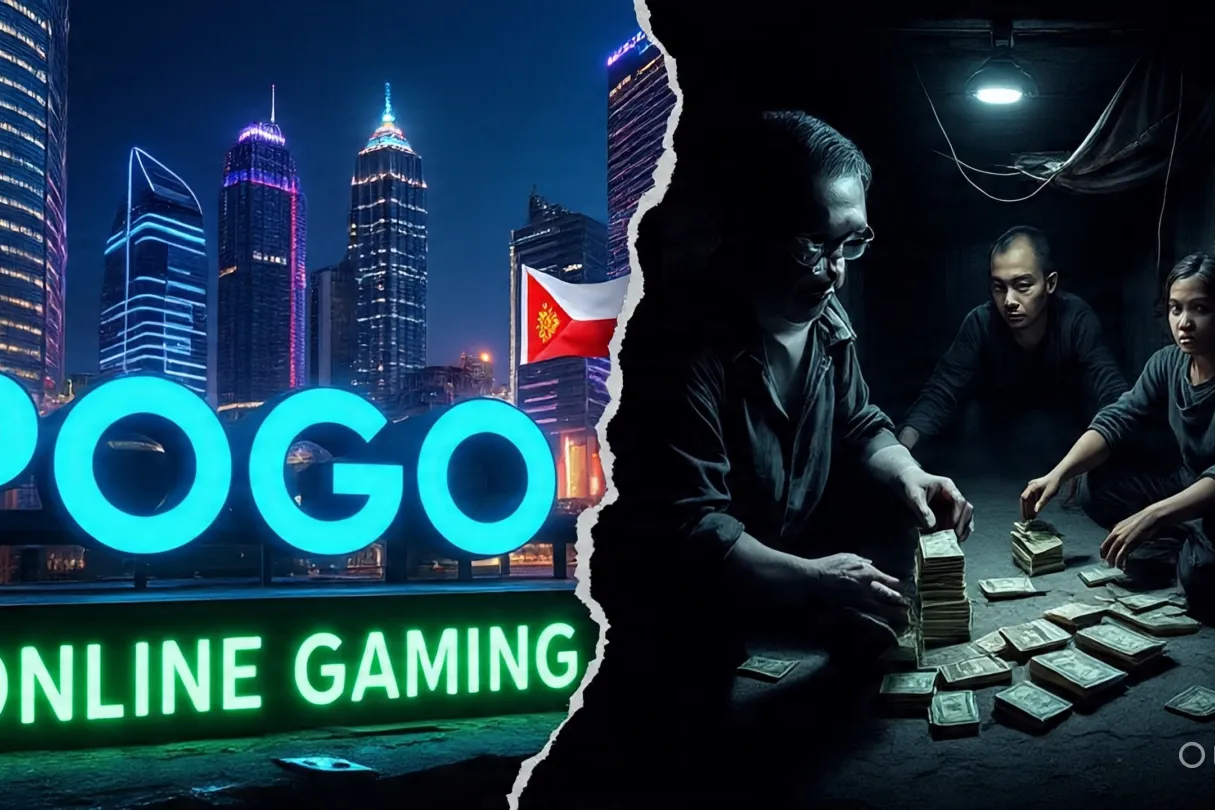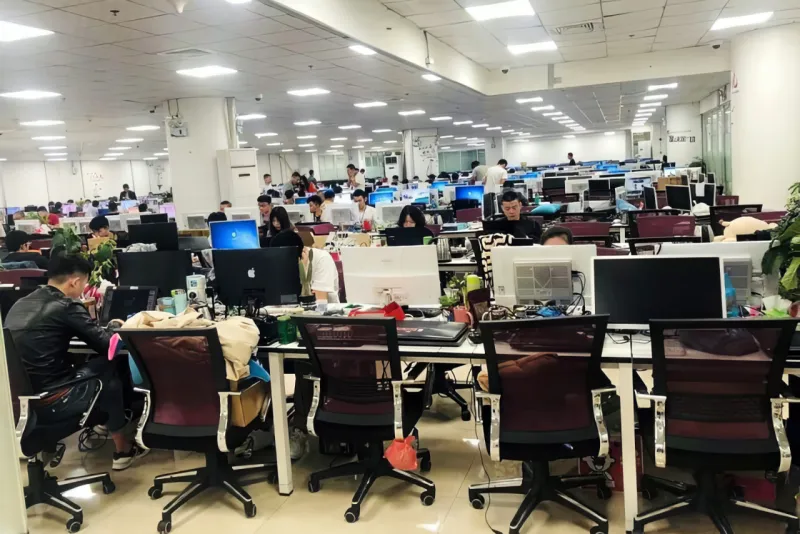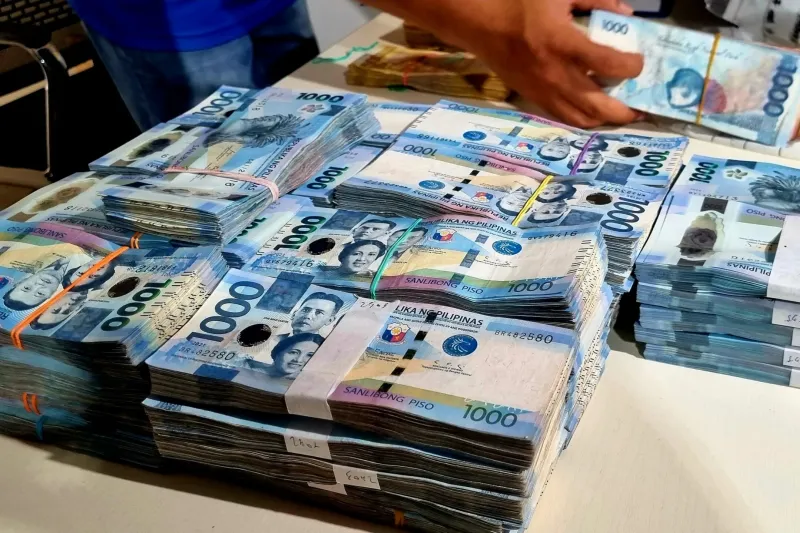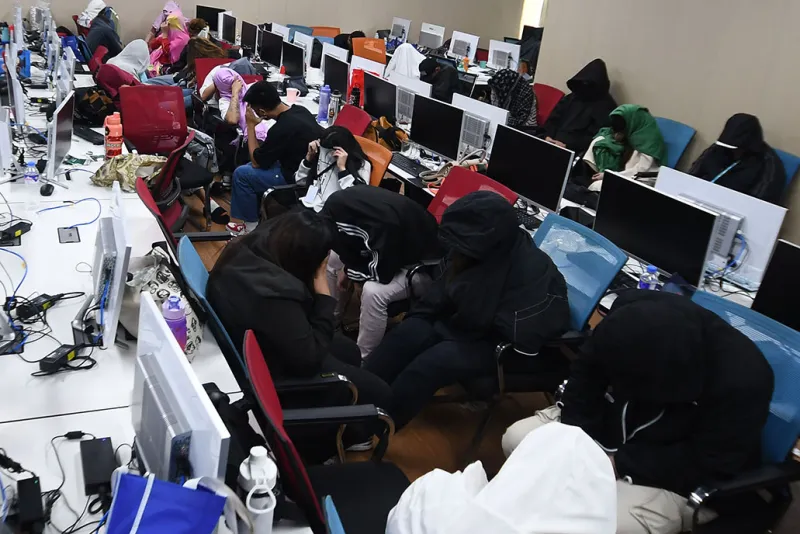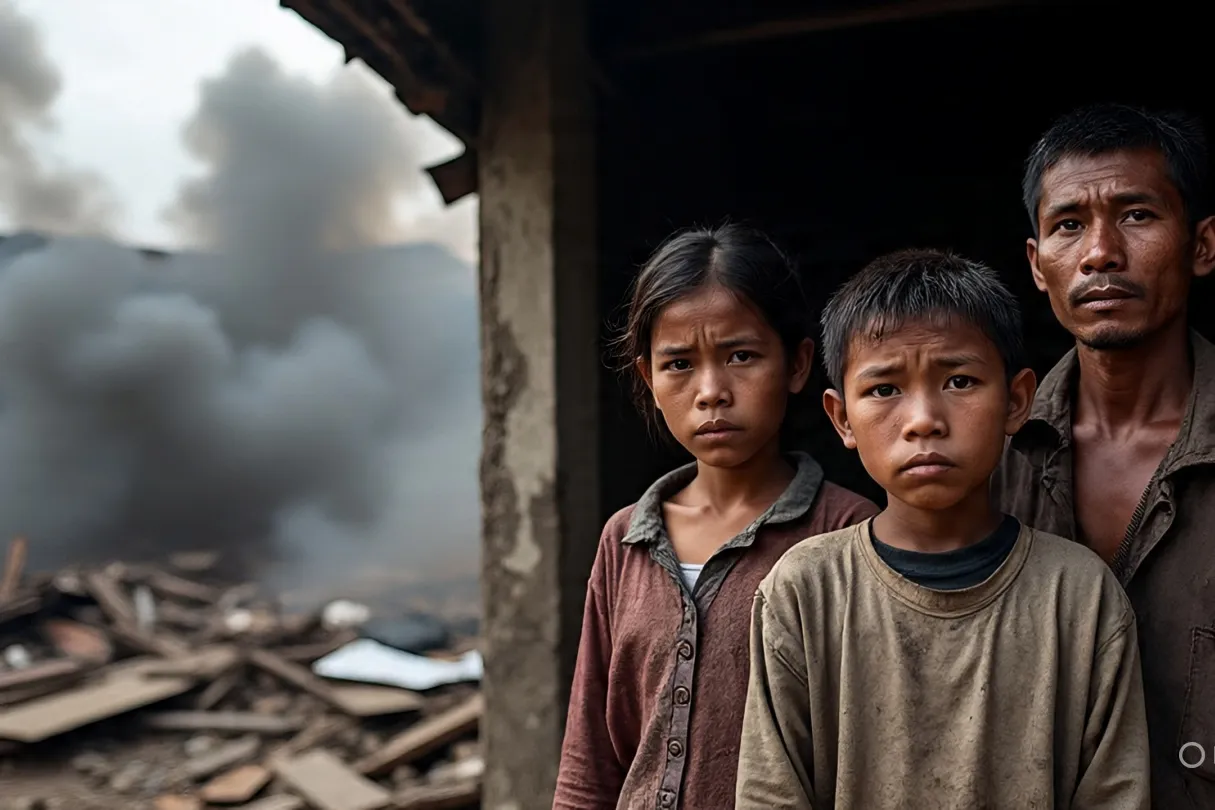🎲 The High-Stakes Gamble: How POGO in the Philippines Sparked a National Crisis
Over the past decade, the Philippine skyline—particularly in Metro Manila—has transformed. Towering glass buildings and high-end condominiums rose seemingly overnight, symbols of an economy on the rise. At the heart of this boom was an unlikely engine: the Philippine Offshore Gaming Operators, or POGOs. Once hailed as a bold strategy to attract foreign investment, the POGO industry promised billions in revenue, explosive growth in real estate, and a wave of new jobs.
- 🎲 The High-Stakes Gamble: How POGO in the Philippines Sparked a National Crisis
- 📜 The Golden Handshake: How POGOs Gained a Foothold
- 💰 A Flood of Cash: Who Really Profited?
- 🚨 The Dark Underbelly: A Tsunami of POGO-Related Crime
- 🏛️ A Shield of Impunity? Politics and Protection
- ⚖️ The Final Verdict: Is Banning POGOs Enough?
But behind the glittering facade of progress, a far more troubling story was unfolding.
What began as an economic success story quietly morphed into a national crisis. The rapid influx of largely unregulated offshore gaming firms opened the door to powerful transnational criminal networks. Human trafficking, kidnapping, extortion, money laundering, and rampant corruption soon followed. The promise of prosperity gave way to fear, scandal, and chaos—threatening not just public safety, but the very fabric of the nation’s sovereignty and rule of law.
This investigative report unpacks the rise and reckoning of the POGO phenomenon. We’ll trace its origins, expose the web of crimes and systemic failures it has enabled, and explore the complicity of political actors and the weaknesses in law enforcement that allowed it all to flourish.
📜 The Golden Handshake: How POGOs Gained a Foothold
The formal entry of the POGO in the Philippines began in earnest around 2016. The government, through the Philippine Amusement and Gaming Corporation (PAGCOR), sought to capitalize on a massive global market by licensing companies to offer online gambling services to customers outside the country. The primary target market was mainland China, where gambling is strictly illegal, creating a vast and untapped reservoir of potential players.
The proposition was tantalizingly simple: the Philippines would provide the operational base, the infrastructure, and the legal sanction for these companies to operate, and in return, the nation would reap substantial economic rewards through licensing fees and taxes. This regulatory framework was designed to position the Philippines as the premier hub for offshore gaming in Asia, attracting foreign capital and stimulating economic activity on an impressive scale.
Several factors made the Philippines an ideal location. Beyond the official government sanction from PAGCOR, the country offered relatively low operational costs compared to other potential hubs like Taiwan or Malaysia. The availability of a large, service-oriented workforce and a rapidly developing real estate sector also made it an attractive destination for these fledgling operators. In the early days, the narrative was overwhelmingly positive, focusing almost exclusively on the economic upside.
Proponents painted a picture of a revitalized economy, with POGO revenues funding government projects and the industry’s demand for office and residential space creating a construction boom. This initial enthusiasm, however, overlooked the critical need for stringent vetting processes and robust regulatory oversight, a lapse that would have devastating consequences in the years to come. The open-door policy, designed to attract investors quickly, failed to adequately distinguish between legitimate business enterprises and front organizations for criminal syndicates seeking a safe haven for their illicit operations.
💰 A Flood of Cash: Who Really Profited?
The economic impact of the POGO in the Philippines was immediate and highly visible, creating a new class of beneficiaries overnight. The most obvious winner was the government itself, with PAGCOR and the Bureau of Internal Revenue (BIR) collecting billions of pesos in fees and taxes. This influx of cash was often touted as a major achievement, funding social programs and infrastructure projects.
However, the true beneficiaries extended far beyond government coffers, creating a complex ecosystem where immense wealth was concentrated in the hands of a select few. The real estate sector experienced a gold rush, with property developers and landlords in key business districts like Makati, Pasay, and Alabang commanding exorbitant rental prices for both massive office floors and entire condominium buildings to house the tens of thousands of foreign workers.
This sudden demand created a speculative bubble, driving property values to unprecedented heights and often pricing out local residents and traditional businesses. Beyond real estate, a host of ancillary service providers also cashed in. These included law firms and consultancy groups that specialized in navigating the complex web of POGO licensing and immigration paperwork, often charging premium fees for their connections and expertise.
Telecommunication companies, internet service providers, and even local eateries and transport services in “POGO hubs” saw a dramatic increase in business. Yet, a significant portion of the wealth generated by POGOs did not trickle down to the broader population.
Reports consistently indicated that these companies preferred to hire foreign nationals, primarily from China, for most roles, limiting job creation for Filipinos. This economic model, where profits were concentrated at the top and largely repatriated or spent within an insular expatriate community, led to growing resentment and questions about the true national benefit of hosting the industry.
🚨 The Dark Underbelly: A Tsunami of POGO-Related Crime
The economic boom promised by the POGO in the Philippines arrived with a terrifying partner: a crime wave of unprecedented scale and brutality. The problems began subtly, with reports of disorderly conduct and minor scams, but quickly escalated into a full-blown crisis dominated by heinous crimes that shocked the nation and exposed the industry’s dark core.
The very nature of the POGO workforce—often young, foreign nationals isolated from their support systems back home—made them perfect targets for exploitation and violence, both as victims and, in some cases, as perpetrators. Law enforcement agencies, seemingly unprepared for this new breed of organized crime, were quickly overwhelmed, leading to a climate of fear and impunity.
The social costs began to mount rapidly, far outpacing any economic benefits being touted by the industry’s proponents. Communities where POGOs operated reported a palpable decline in public safety and a rise in social friction. The perception grew that the government had traded the safety of its citizens for foreign investment, allowing criminal syndicates to operate with a shocking degree of freedom.
This erosion of public safety became the single most powerful argument against the continued presence of POGOs, uniting disparate voices from across the political spectrum in a call for decisive action. The daily headlines filled with stories of POGO-related atrocities painted a grim picture of a nation struggling to control the monster it had invited in.
⛓️ Human Trafficking and Modern Slavery
The industry’s insatiable demand for Chinese-speaking workers created a fertile ground for human trafficking syndicates. These groups operated sophisticated recruitment networks, luring individuals from China and other Southeast Asian nations with false promises of high-paying tech jobs in the Philippines.
- ✈️ Deceptive Recruitment: Victims were promised lucrative salaries, comfortable living conditions, and legitimate employment.
- 🔒 Confiscated Passports: Upon arrival, their passports were seized by employers, immediately rendering them powerless and unable to leave.
- 🏢 Forced Labor: They were forced to work grueling hours as online casino dealers or scam operators, confined to their offices or living quarters.
- 💸 Debt Bondage: Workers were often told they owed exorbitant “recruitment fees” and that their families back home would be threatened if they did not comply or attempted to escape.
- 🚨 Illegal Status: Many were brought in on tourist visas and forced to work illegally, making them terrified of seeking help from authorities for fear of deportation.
🔪 Kidnapping, Torture, and Extortion
Perhaps the most terrifying crime to emerge from the POGO ecosystem was the explosion of kidnapping-for-ransom incidents. These were not random acts but targeted operations, often perpetrated by criminal elements connected to the POGOs themselves.
- 🎯 Targeted Victims: The primary targets were POGO workers who had gambling debts, were suspected of cheating the company, or were simply seen as easy marks with access to money.
- 🎬 Public Spectacle: Kidnappings were sometimes brazen, occurring in public spaces and occasionally filmed by the perpetrators to intimidate others.
- 💰 Ransom Demands: Gangs would contact the victim’s family in China, demanding huge sums of money for their release.
- 🤕 Brutal Violence: Victims were frequently subjected to beatings, torture, and psychological abuse, with videos of the torment sent to families to pressure them into paying.
- 🕵️♂️ Syndicate Operations: Law enforcement analysis revealed that many of these kidnapping gangs were composed of foreign nationals who were part of larger criminal organizations that had set up shop in the Philippines under the cover of the POGO industry.
💸 Money Laundering and Financial Crimes
The massive, often untraceable cash flows inherent in online gambling made POGOs a perfect vehicle for money laundering. The industry provided a legitimate-looking cover to wash billions of dollars in illicit funds from criminal activities around the globe.
- 💼 Suspicious Cash Inflows: There were numerous reports of individuals carrying suitcases filled with millions of dollars in foreign currency through Philippine airports, allegedly linked to POGO financing.
- 🏦 Complex Financial Webs: Criminals used shell corporations and complex transaction layers connected to POGO operations to obscure the origins of dirty money.
- 📱 Cybercrime Hubs: Beyond gambling, many POGO centers were found to be doubling as headquarters for a wide range of cybercrime, including large-scale cryptocurrency scams, romance scams, and investment fraud targeting victims worldwide.
- 📉 Economic Destabilization: The unchecked flow of illicit funds posed a significant threat to the stability of the Philippine financial system and put the country at risk of being blacklisted by international anti-money laundering watchdogs.
🏛️ A Shield of Impunity? Politics and Protection
The ability of the POGO in the Philippines to thrive despite the rampant criminality surrounding it led to widespread and credible suspicions of high-level political protection. The sheer scale of the industry’s revenues created a powerful incentive for corruption, with vast sums of money allegedly being used to buy influence, silence critics, and ensure that law enforcement and regulatory bodies would turn a blind eye. This created a shield of impunity around POGO operators, allowing them to function as a state within a state, often above the law. The intricate network of protection was believed to involve influential lobbyists, well-connected law firms, and corrupt officials within various government agencies, from local government units to national-level bureaus.
Expert analysis suggests that this political patronage was the key ingredient that allowed the POGO problem to metastasize. Without this top cover, it is unlikely that the industry could have withstood the intense public scrutiny and the mounting evidence of its criminal connections. Allegations frequently surfaced about POGO money funding political campaigns, ensuring that friendly officials remained in power to protect the industry’s interests. This dynamic created a vicious cycle: the more money POGOs generated, the more influence they could buy, and the more entrenched they became, making it increasingly difficult for honest public servants and law enforcement to hold them accountable. This systemic corruption represents one of the deepest and most lasting forms of damage inflicted by the POGO industry, eroding public trust in institutions and undermining the rule of law.
⚖️ The Final Verdict: Is Banning POGOs Enough?
As the social costs became impossible to ignore, public and political sentiment turned sharply against the POGO in the Philippines. What was once seen as an economic lifeline is now widely viewed as a national security threat. The debate has shifted from regulation to outright prohibition, with numerous legislative bills filed to ban the industry entirely.
The core argument for a ban is simple and powerful: no amount of revenue can justify the erosion of public safety, the corruption of institutions, and the transformation of the country into a playground for transnational crime. A complete ban would send a clear message that the Philippines is no longer open for this kind of business, severing the primary lifeline for the criminal syndicates that have embedded themselves in the country.
However, a ban is not a magic bullet. The damage inflicted by the POGO era is deep, and its consequences will linger long after the last POGO office closes its doors. The criminal networks built under the cover of the industry will not simply vanish; they are adaptable and may pivot to other illicit enterprises. The corruption that seeped into the bureaucracy and law enforcement will require a painful and prolonged process of cleansing and reform.
Furthermore, the nation must grapple with the economic fallout, particularly in the real estate sector, which had become dangerously dependent on POGO rentals.
The challenge now extends far beyond simply shutting down an industry. It is a fight to reclaim national sovereignty from criminal influence. It requires a sustained, whole-of-government approach focused on strengthening law enforcement, fortifying anti-money laundering controls, prosecuting corrupt officials, and rebuilding the public’s shattered trust.
While banning POGOs is a critical and necessary first step, it is only the beginning. The true test will be in the nation’s resolve to undertake the difficult, long-term reforms needed to ensure that such a catastrophic policy failure is never repeated.
The POGO saga must serve as a permanent, painful lesson on the dangers of chasing short-term profit at the expense of long-term security and national integrity. The gamble has failed, and the bill has come due.
